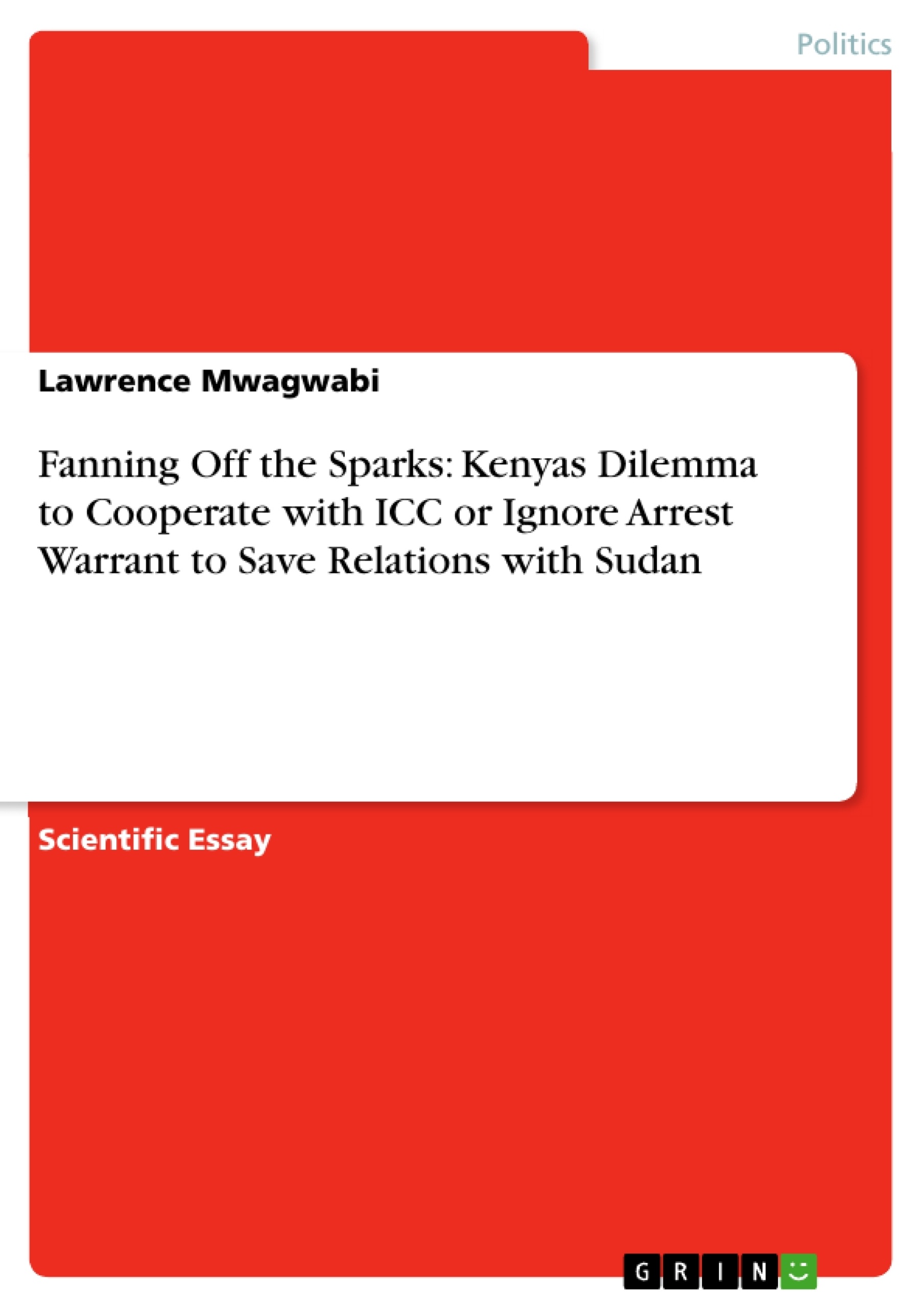This paper discusses the conflict between Customary International Law and the Rome Statute. It explains the dilemma Kenya finds itself in its commitment to the ICC warrant of arrest on Bashir, on one hand, and its diplomatic relations with Sudan. It further discusses the geopolitics of the horn of Africa and its implication on Kenya's court decision to prefer warrant of arrest on President Al-Bashir should he set foot in Kenya. It concludes that the Kenyan courts find itself passing a decision that is very difficult to implement.
Inhaltsverzeichnis (Table of Contents)
- Diplomatic Crisis
- Ruling by Justice Ombija
- Sudan's Response
- Implications for Kenya
- International Law and Arrest Warrant
- Diplomatic Law
- Customary International Law
- International Tribunals
- Rome Statute and Sovereignty
- The Arrest Warrants Case
- Implications of Prosecuting Sitting Heads of State
- Practical Difficulties
- Enforcement of ICC Warrants
- ICC's Operation within States
- Comity of States and ICC
Zielsetzung und Themenschwerpunkte (Objectives and Key Themes)
This paper explores the complexities of enforcing an arrest warrant on Sudanese President Omar Al-Bashir, wanted by the International Criminal Court (ICC), while he is in office. The paper examines the legal and diplomatic implications of such an arrest, focusing on the balance between international law and national sovereignty.- International Law and National Sovereignty
- Diplomatic Immunities and Privileges
- Enforcement of International Arrest Warrants
- The Role of the International Criminal Court (ICC)
- Geopolitical Considerations in International Relations
Zusammenfassung der Kapitel (Chapter Summaries)
The paper begins by detailing the diplomatic crisis sparked by a Kenyan High Court ruling that ordered the government to arrest President Al-Bashir if he entered Kenya. This ruling resulted in a diplomatic breakdown with Sudan, including sanctions and the expulsion of Kenyan citizens. The author then explores the international legal framework surrounding the arrest warrant. This includes analyzing diplomatic law, customary international law, and the role of international tribunals. The author then analyzes the implications of prosecuting sitting heads of state for international crimes, emphasizing the tension between state sovereignty and international law. The paper concludes by outlining the practical difficulties in enforcing the ICC arrest warrant on President Al-Bashir, particularly highlighting the challenges of securing support from other states and the limitations imposed by the ICC's operating within the comity of states.Schlüsselwörter (Keywords)
The key terms and concepts in this work include: international law, diplomatic immunities, international arrest warrants, International Criminal Court (ICC), national sovereignty, state sovereignty, geopolitics, diplomatic relations, customary international law, Rome Statute, Sudan, Kenya, Omar Al-Bashir, and the Arrest Warrants case.Frequently Asked Questions
What is the ICC dilemma facing Kenya?
Kenya is torn between its commitment to the International Criminal Court (ICC) to arrest President Al-Bashir and maintaining diplomatic relations with Sudan.
Can a sitting head of state be arrested under international law?
This is a major conflict between Customary International Law (diplomatic immunity) and the Rome Statute, which seeks to prosecute international crimes regardless of office.
What was the reaction of Sudan to the Kenyan court ruling?
Sudan responded with sanctions and the expulsion of Kenyan citizens, highlighting the severe diplomatic consequences of enforcing ICC warrants.
How does "state sovereignty" impact ICC enforcement?
National sovereignty often hinders the enforcement of international warrants, as the ICC relies on the cooperation of states that may prioritize regional stability.
What are the practical difficulties in arresting Omar Al-Bashir?
Difficulties include the lack of an independent ICC enforcement force and the geopolitical implications for the Horn of Africa.
- Citation du texte
- Lawrence Mwagwabi (Auteur), 2012, Fanning Off the Sparks: Kenyas Dilemma to Cooperate with ICC or Ignore Arrest Warrant to Save Relations with Sudan, Munich, GRIN Verlag, https://www.grin.com/document/189054



